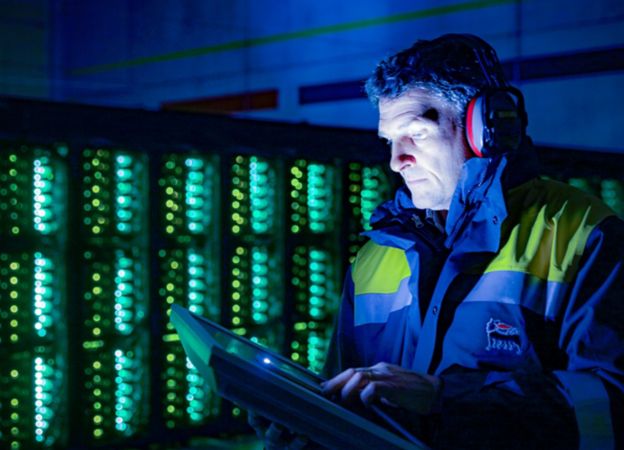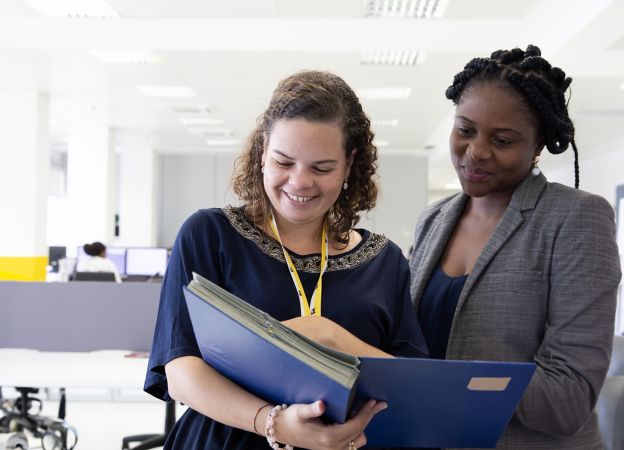64
countries
in which we operated

Or , our new artificial intelligence tool.
Via a packed portfolio of products and services and a system of partnerships with countries and businesses, we work across the world to help ensure safe and diversified energy supplies.
We are a global energy tech company present in 64 countries with more than 31,000 employees. The values that inspire our mission are reflected in our business model, which is based on the three goals we pursue at global level:
Natural gas is the focal point of our energy mix and has a key role to play in efforts to achieve the target of Net Zero emissions. At the same time, we also invest in renewable energy, biorefining and decarbonisation technologies, such as the capture and storage of CO2. To help combat the effects of climate change, we aim to achieve carbon neutrality by 2050 through an emissions reduction process that involves all of the countries in which we operate, our partners and our suppliers.
Select the view by country and project, and zoom in on the map using the side controls (+/-). Double-click the push-pins to display the information boxes.
Chief Executive Officer of Eni

We collaborate with producer countries and business partners to diversify our sources and offer increasingly decarbonised energy services. (Source: Annual Report 2024)
in which we operated
that work in Italy and abroad
new resources (barrel of oil equivalent)
hydrocarbons production (barrel of oil equivalent per day)
(million cubic feet per day) natural gas production (out of the total hydrocarbons production)
investiments for local development
biorefinery capacity
We contribute to the security of natural gas supply and the energy transition by leveraging local resources in the countries we work in.
Find out moreWe are present in Europe, Africa, the Americas, Asia, Oceania and the Middle East. We work to achieve a fair and socially equitable energy transition. In parallel with our energy production and transformation activities, through the partnerships we form with the countries and communities that host us, we launch initiatives that contribute to regional socio-economic development. Our core values include the promotion of personal health and safety, environmental protection and respect for human rights.
In addition to our traditional business, in Italy we are also focused on the development of renewable energy and the transformation of the company, focusing particular attention on the circularity of processes, energy security and the diversification of supplies.
Find out moreRead the stories, case studies and testimonials behind our contribution to a socially equitable energy transition in the Sustainability Report.
The interactive special
If you want to change topic, clear the chat and make a new query to receive more relevant results.
This will delete the question history.
If you want to change topic, clear the chat and make a new query to receive more relevant results. This will delete the question history.
Here you can find the full list of your queries.
The answers are generated by artificial intelligence, therefore they may contain inaccuracies. Please read the terms and conditions of use.

EnergIA is an innovative tool based on artificial intelligence capabilities, which can help you navigate the contents of eni.com, quickly finding answers to your questions. EnergIA can also perform a search on a specific topic, providing the most up-to-date data available, or it can invite you to delve deeper into a topic of your interest by suggesting links and specific readings. Start now!
EnergIA is an innovative tool based on artificial intelligence capabilities, which can help you navigate the contents of eni.com, quickly finding answers to your questions. Start now!
EnergIA (ener'dʒia) is a system based on Generative Artificial Intelligence.
Thanks to this technology, we can respond to your requests by querying the most relevant content and documents available on eni.com. (Note: financial documents from the last 12 months and press releases from the last 2 years are considered.)
Through EnergIA, you can delve into topics of interest and have a real-time window into the world of Eni.
If you wish to search for a specific document, press release or news, use the traditional search engine via the magnifying glass icon.
Like all systems that leverage Generative Artificial Intelligence, EnergIA may generate inaccurate or outdated responses. Always consult the sources that EnergIA proposes as the origin of the generated information.
If the system fails to find an exact match for the requested content, it still tends to provide a response.
If you find any inaccuracies in the provided response, please send us your feedback at the bottom of the page: it will be very helpful for us to improve.
Remember that the content generated by the system does not represent Eni’s official position. We therefore invite stakeholders to refer to their designated contacts for official statements: Press Office for journalists, Investor Relations for analysts and investors, Company Secretariat for shareholders etc..
EnergIA can understand questions posed in almost all languages, but we prefer to provide you with a response in English or Italian, the two languages available on eni.com. If you ask a question in Italian, the content on the site in Italian will be consulted. If you ask it in English or any other language, the content in English will be consulted. (Note: the language Eni uses for financial documents/content is predominantly English.)
If questions are formulated that violate the set security criteria, the system will not proceed with processing the response. Please remember not to send personal data.
By using this service, the users acknowledge that they have read and accepted the terms and conditions of use.
Search
EnergIA (ener'dʒia) is a system based on Generative Artificial Intelligence.
Thanks to this technology, we can respond to your requests by querying the most relevant content and documents available on eni.com. (Note: financial documents from the last 12 months and press releases from the last 2 years are considered.)
Through EnergIA, you can delve into topics of interest and have a real-time window into the world of Eni.
If you wish to search for a specific document, press release or news, use the traditional search engine via the magnifying glass icon.
Like all systems that leverage Generative Artificial Intelligence, EnergIA may generate inaccurate or outdated responses. Always consult the sources that EnergIA proposes as the origin of the generated information.
If the system fails to find an exact match for the requested content, it still tends to provide a response.
If you find any inaccuracies in the provided response, please send us your feedback at the bottom of the page: it will be very helpful for us to improve.
Remember that the content generated by the system does not represent Eni’s official position. We therefore invite stakeholders to refer to their designated contacts for official statements: Press Office for journalists, Investor Relations for analysts and investors, Company Secretariat for shareholders etc..
EnergIA can understand questions posed in almost all languages, but we prefer to provide you with a response in English or Italian, the two languages available on eni.com. If you ask a question in Italian, the content on the site in Italian will be consulted. If you ask it in English or any other language, the content in English will be consulted. (Note: the language Eni uses for financial documents/content is predominantly English.)
If questions are formulated that violate the set security criteria, the system will not proceed with processing the response. Please remember not to send personal data.
By using this service, the users acknowledge that they have read and accepted the terms and conditions of use.
A new window into Eni’s world, at your disposal. EnergIA is an innovative tool based on artificial intelligence capabilities, which can help you navigate the contents of eni.com, quickly finding answers to your questions.



